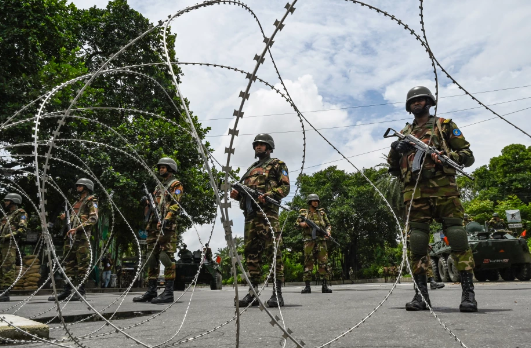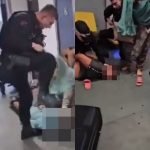Bangladesh has further eased a nationwide curfew as students consider the future of their protest campaign against civil service hiring rules that triggered violent unrest last week. The violence, which resulted in at least 191 deaths, including several police officers, was among the worst seen during Prime Minister Sheikh Hasina’s tenure, according to AFP’s count from police and hospitals.
While thousands of troops continue to patrol cities and a nationwide internet shutdown remains largely in place, clashes have diminished following a temporary halt to demonstrations announced by protest leaders.
The government has relaxed the curfew to allow free movement from 10:00 am to 5:00 pm, and the capital Dhaka, previously quiet due to unrest, was bustling with commuter traffic in the morning.
Banks, government offices, and crucial garment factories reopened on Wednesday after being closed during the unrest. Student leaders are scheduled to meet later Thursday to decide whether to extend their protest moratorium, which is set to end on Friday.
The group behind the protests, Students Against Discrimination, is seeking several concessions from the government, including an apology from Prime Minister Sheikh Hasina for the violence, as well as the dismissal of the home and education ministers. The group also believes the reported death toll is understated and is compiling its own list of confirmed fatalities.
Since the violence began, police have arrested at least 2,500 individuals. The protests erupted in response to a government scheme reintroduced in June that reserves more than half of government jobs for specific groups, including descendants of Bangladesh’s independence war veterans.
With around 18 million young people in Bangladesh out of work, according to government figures, the move deeply upset graduates facing an acute jobs crisis.
Critics say the quota is used to stack public jobs with loyalists to Hasina’s Awami League.
The Supreme Court cut the number of reserved jobs on Sunday but fell short of protesters’ demands to scrap the quotas entirely.
Hasina, 76, has ruled the country since 2009 and won her fourth consecutive election in January after a vote without genuine opposition.
Her government is also accused by rights groups of misusing state institutions to entrench its hold on power and stamp out dissent, including the extrajudicial killing of opposition activists.



